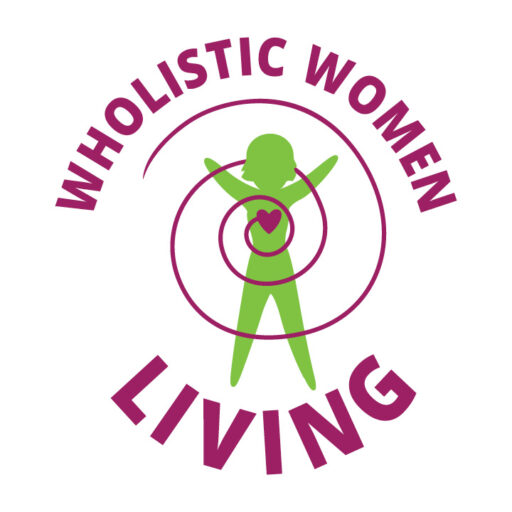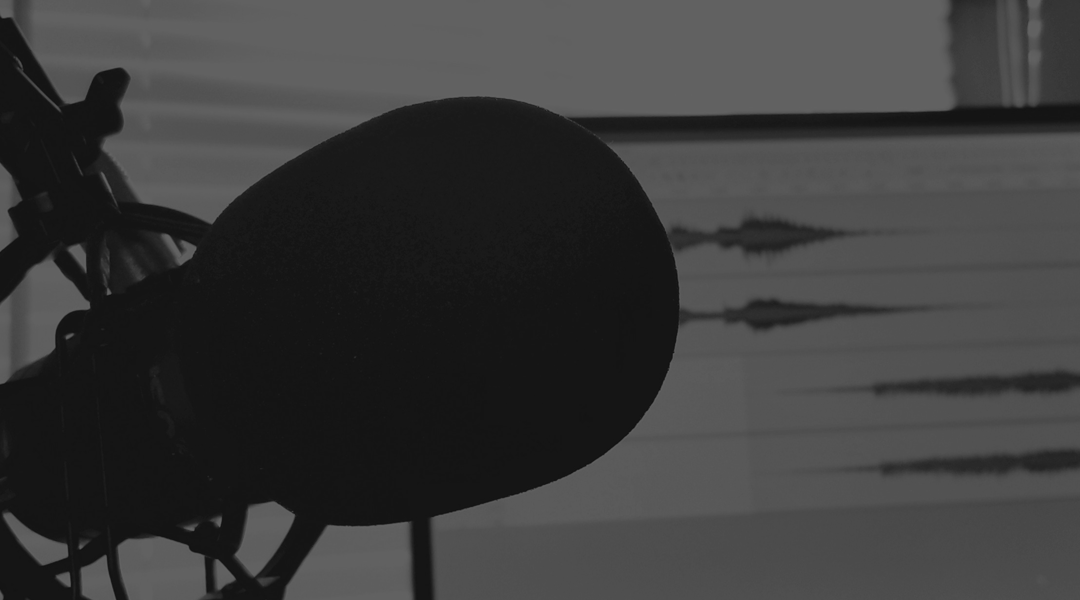


Be Washed; Girl, Wash Your Face
As an Occupational Therapy Professional, one of the many things we do every day is to help people with their activities of daily living. Things like grooming, bathing, and dressing.
In the upcoming BE WASHED Event, as your Evening Coach, I will be helping you in another activity of daily living…the area of your thinking.
Imagine if you will, that voice that sometimes sits on your shoulder. Is it whispering words of TRUTH and LOVE or FEAR and LIES?
We will begin the evening retreat by exploring the book, Girl; Wash Your Face by Rachel Hollis. Here, we will learn to STOP believing the lies about who we are so we can HONOR and become who we were meant to be our true authentic selves.
Have you ever found yourself saying things like “I’ll start that diet tomorrow.” Then several pounds up on the scale you hear yourself repeating those same words weeks later? Me too! I can’t tell you the number of times I have started my diet tomorrow, Monday, or the first of the New Year. Or how about…I’m going to take that spin class at the Y, or I’ll start walking around the block every day from now on.
WELLLLLLLLLLLL Lies, all lies we tell ourselves. We like to talk about all the things we are going to do, learn about the things we are going to do, but somehow, we never get around to DOING all the things we say we are going to do. Ugh! Can anyone out there relate?
Many of us can. The Be Washed event will expose more of the most common lies we tell ourselves and offer new strategies to help us be honest with ourselves about what we are blowing off.
The second half of the event we will be taking a look at the book Change your Mind, and Your Life Will Follow by Karen Casey. Her book showcases 12 principles that guide us towards LOVE. Who out there doesn’t need more of that?
Thirty years ago Karen Casey wandered into a support group and learned there was only one thing she could change—herself! The result of this change was so profound she dedicated much of her life to teaching others about it.
I, like Karen, believe if we change our minds, our lives WILL follow. I want to use the opportunity I have as an Occupational Therapy Professional and a Coach to help others grow in this area of thought. Let’s face it; it truly is an activity of daily living.
Let’s think better, do better and feel better. What do you say?
Hope to see you there!
About today’s author: Kat Middleton is an Empowerment Coach who is passionate about her work and advocates for authentic wholehearted living both personally and professionally. She is a Certified Professional Coach and Occupational Therapy Practitioner who loves working with people holistically; helping others to help themselves see things through new filters. Kat joined the Wholistic Woman community in September of 2017. She is very excited to learn, grow, and have much fun with this AMAZING group of women. Kat is available for private one-on-one coaching as well as group workshops, seminars, and speaking events.
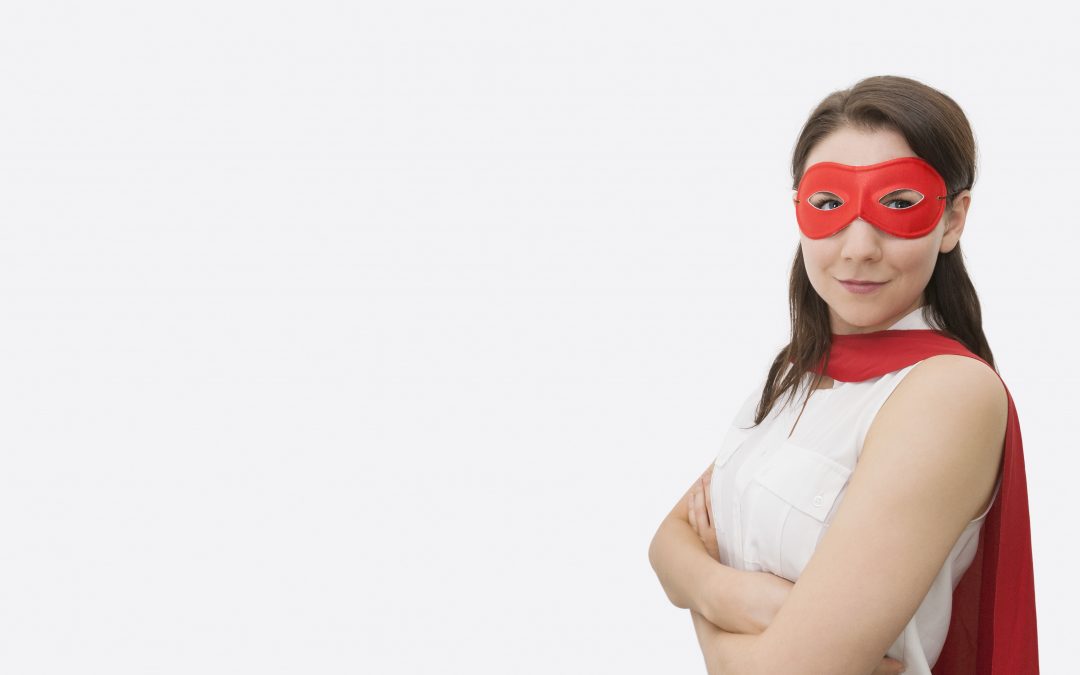
Love Over Fear – A New and Growing Superpower!
Are you one of the people that have a tendency to be fearful and hard on yourself? It’s like an automatic default to the land of negative thinking and feelings of unworthiness. Others tell you to stop being so hard on yourself, and you wonder how? If you knew how to do that, you would certainly have done that a long time ago to stop the suffering.
Over the years I began to realize this was a real problem for a lot of people and me. I now see it as an opportunity and blessing in the pursuit of wholehearted living. I learned all about distorted thinking and the lies we tell ourselves and automatically believe. It was a real awakening. I read a book titled Ten Days to Self Esteem by David Burns, and there I found a breakdown of the many ways we can distort our thinking.
- All or Nothing thinking – Looking at things in Black & White
- Overgeneralizing – Viewing an adverse event as a never-ending pattern of defeat
- Mental Filter – Dwelling on the negatives and avoiding the positives.
- Discounting the Positives – Insisting that your accomplishments or positive qualities don’t count.
- Jumping to Conclusions – Concluding things are wrong without any conclusive evidence. (Mindreading) or (Fortune Telling)
- Magnification or Minimization – Blowing things way out of proportion or shrinking their importance.
- Emotional Reasoning – Reasoning from how you feel. You feel like an idiot so you must be one.
- Should Statements – Criticizing yourself or others with should, shouldn’t, must, ought’s, and have to.
- Labeling – Instead of saying I made a mistake. You label yourself a loser or stupid.
- Blame – Blaming yourself for something you are not entirely responsible for or blaming other people and overlooking the ways you may have contributed to the problem.
What I initially believed is that we feel the way we think. So, I thought to myself, just think positive! But as my default would have it that led me back to… I am thinking positive but still feeling negative so this must be my fault. Not knowing if that was self-centered or reality-based, I kept searching for answers.
That’s when I discovered Brené Brown. This quote of hers spoke directly to me:
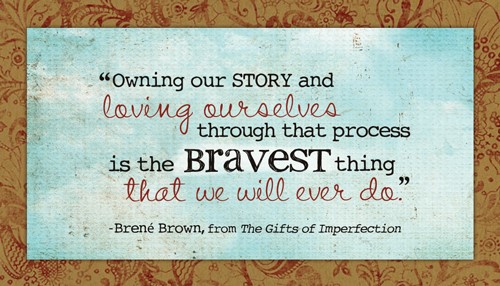
(Love over Fear and growing a new superpower was in the works but it would require more explanation and understanding).
Brené teaches us YOUR THOUGHTS + ACTIONS + FEELINGS ARE LIKE A THREE-LEGGED STOOL
One leg represents Thinking.
One leg represents Feelings.
One leg represents Behavior.
Incorporating all three would then equal our wholehearted living and loving selves.
FEAR thinks-I’m not good enough, or I’m no good at this, how frustrating, I’ll numb out with some of my favorite comfort food.
WHOLEHEARTED LOVE thinks – I’m going to work on this, I feel good about having a goal, and I will take it one day at a time and strive to build on that.
Wholehearted living and loving are about engaging in our lives from a place of worthiness, being brave, putting love over fear and knowing we are enough.
While some argue that you can change your life by changing your thoughts, Brené has seen no evidence of this in her research. She says, “Real transformation doesn’t happen until we address all three parts as equally essential parts of a whole, elements that are inextricably connected to one another”.
If being wholehearted makes us whole, then the opposite of that is to be broken, fractured, or in disarray. So many of us are moving thru life this way. The irony is that we attempt to disown our difficult stories to appear more whole or more acceptable, but our wholeness actually depends on the integration of All of our experiences.
Remember… the three-legged stool shows the way you THINK affects the way you FEEL which then determines and will have a direct impact on your BEHAVIOR and what you DO.
So what then do we do?
WE GET CURIOUS
Be willing to open a line of inquiry into what’s going on with you, and why?
- Why am I being so hard on myself? Or others?
- What is setting me off?
- How did I get to the point of no return and wanting to punch something?
- Why am I so overwhelmed?
- Why can’t I shut my brain off?
- Why am I reacting so emotionally?
- What is going on?
Since we respond to EMOTIONS FIRST, and they often direct us to shut down or disengage. This is why we need to train ourselves to get curious about our emotions and develop a desire to learn more about why we feel the way we do. Although we don’t want to feel our feelings, this is the starting point to growing our superpower.
Brené says “The opposite of recognizing that we’re feeling something is denying our emotions. The opposite of being curious is disengaging. When we reject our stories and disconnect from tough emotions, they don’t go away; instead,
“They own us, they define us”!
Our job then is not to deny our feelings in fear of feeling them, but rather to explore them with love, grace (My One Word for 2019) and curiosity, teasing out the distorted thoughts and getting clear on our truth (My One Word for 2018). Being open to the daily Wholistic (heart, mind, body, and spirit) practice of consciously choosing our thoughts, feelings, behaviors, and living and loving as a whole person, growing and strengthening our Love over Fear Superpower!!
About today’s author: Kat Middleton is an Empowerment Coach who is passionate about her work and advocates for authentic wholehearted living both personally and professionally. She is a Certified Professional Coach and Occupational Therapy Practitioner who loves working with people holistically; helping others to help themselves see things through new filters. Kat joined the Wholistic Woman community in September of 2017. She is very excited to learn, grow, and have much fun with this AMAZING group of women. Kat is available for private one-on-one coaching as well as group workshops, seminars, and speaking events.

Feedback… What the Work of Brené Brown Has Taught Me
feedback noun
Feed · back | \ ˈfēd-ˌbak\
Definition of feedback
1a: the transmission of evaluative or corrective information about an action, event, or process to the original or controlling source
I am currently reading Brené Brown‘s latest book, Dare to Lead, for the second time, and I am in the section where she is talking about feedback and the two sides of it…giving and receiving.
This got me thinking about myself and where I am in regards to how I give and receive both positive and negative feedback.
What I know is true for me, and I believe is true for most of us, is that positive feedback is easier all the way around. There are a couple of things thought that I think we should watch out for when it comes to positive feedback.
First, I think sometimes we just don’t take the time to give it. We assume people know they are doing a good job and that we appreciate them. I admit I am guilty of this at times. If you’re like me in this situation, I encourage you to make a point to express your gratitude and appreciation to others. Every time I do this, I know both parties involved walk away feeling better then we had the moment before. It feels awesome to be either on the receiving or giving end of positive feedback.
The other struggle I see with positive feedback, however, happens on the receiving side. So many of us are uncomfortable being praised so we downplay it or brush it aside. Again, I admit I struggle with this and over the past several years have been practicing saying thank you and receiving positive feedback with gratitude and grace.
Negative feedback is another story.…both the receiving and the giving make me extremely uncomfortable! So, this is what I want to focus on today.
One of the things I love about Brené Brown’s work is that she looks for ways to make it teachable. In one of her earlier books, Daring Greatly, she developed a 10 step feedback readiness checklist. The checklist looks like this…
I know I’m ready to give feedback when:
- I’m ready to sit next to you rather than across from you.
- I’m willing to put the problem in front of us rather than between us (or sliding it toward you).
- I’m ready to listen, ask questions, and accept that I may not fully understand the issues.
- I’m ready to acknowledge what you do well instead of just picking apart your mistakes.
- I recognize your strengths and how you can use them to address your challenges.
- I can hold you accountable without shaming or blaming.
- I’m open to owning my part.
- I can genuinely thank someone for their efforts rather than just criticizing them for their failings.
- I can talk about how resolving these challenges will lead to growth and opportunity.
- I can model the vulnerability and openness that I expect to see from you.
Don’t you just love this! It’s a tool you can sit down with and run through prior to what might feel like a difficult conversation. I’ve been working with this since I first came across it in 2012 and it has been a game changer.
In daring greatly, it was this sentence that stood out to me: “We have to be able to take feedback – regardless of how it’s delivered – and apply it productively. We have to do this for a simple reason: mastery requires feedback. I don’t care what we’re trying to master – and whether we are trying to develop greatness or proficiency – it always requires feedback.“
I want you to pause for a moment and think about a time you received hard to hear feedback… How was it delivered?… how did you receive it?
I know for me before I began my homework on self-discovery and self-reflection, my default tendency was to become defensive and to use blame as a form of offloading. I would feel the discomfort of the situation and instead of being able to sit in the discomfort and to really listen to the feedback, I would immediately start explaining why I had acted in the manner I had. I would also look for reasons to justify my behavior. When I looked at these reasons closely I was able to see my behavior as what it was… blaming someone else. When I saw this video I immediately saw myself in it…Take a moment to look at this video and you’ll see exactly what I’m talking about. This could be me talking…
This is not who I want to be! I want to be someone who can receive feedback, regardless of how it delivered, with open-mindedness. So, the big question is how do we do this?
For me, it boils down to how I am feeling about my own self-worth. When I am feeling enough, I am able to listen without my ego getting in the way. I want to be better every day, and feedback is a way to make that happen. When my self worth is intact I am able to take the information in without labeling it as good or bad and mindfully decide which pieces of the feedback are going to help me become a better version of me. Some days I’m better at this than others.
Here is what Brené says in Dare to Lead about receiving feedback…
“ Receiving feedback is tricky for several reasons. One, we might be receiving feedback from someone who lacks delivery skills. Two, we might be at the hands of a skilled person, but we don’t know their intentions. Three, unlike when we’re giving feedback and we schedule it and know precisely what we’re going to say or do, when we’re receiving feedback, we can sometimes be taken off guard. Someone calls us into their office, or we pick up the phone and it’s a client, and they say, “Hey, we’re looking at the pitch you all submitted. We think it sucks, and it’s so far off brief, and we can’t believe you think we’re going to spend this much money with you.” And that’s feedback. Does it feel productive? Is it easy to stay open and receptive to it? Not so much after we hear the word sucks.”
Navigating the uncertain waters of feedback is definitely challenging. Here are a couple of strategies to help you…
First, stay aligned with your values and try creating a mantra that can help you in the moment. For example, I value the act of being curious. I think this stems from my strength of learner (according to Gallup’s Strengths Finder Assessment). So when I am on the receiving end of giving feedback, I am often silently repeating to myself… stay curious, stay curious, stay curious over and over as a way to stay connected to my values. Or when I am on the giving end of negative feedback, I practice reminding myself that there will always be things on the other side of the situation that I need to know and staying open and curious is a good way to gather that information.
Second, practice staying present. Take the time to learn what your default tendency is when it comes to offloading discomfort and then practice not implementing that strategy. Some typical strategies are anger, blame, pretending we aren’t uncomfortable, and numbing to name a few.
Do you know what your go-to strategy is?
The bottom line is that negative feedback is a challenge for most of us, but if we want to live a life that allows for expansion and growth, we have to practice both giving and receiving it.
I’d love to hear your thoughts on this topic. What have you learned about feedback? Please share it with me in the comment section.
Today’s author: Laura Hall, CPC, CDWF: As a certified professional coach since 2009, Laura Hall, Certified Daring Way™ Facilitator has been helping people just like you make changes in both their personal and professional lives. Laura can be reached via email at [email protected] or feel free to visit her website HallCoaching.com

Fiscal Self-Care
Self-care can be described as incorporating practices that increase our mental, physical and spiritual wellness. It’s about taking time to reflect on the parts of your life that leave you feeling drained or overwhelmed, and taking action steps to lower your stress and increase your well-being.
Practicing self-care can often take a back seat to the hustle and bustle of our everyday lives. We can forget how important it is to make sure we nurture ourselves so that we can show up as our best selves for those that are counting on us-as the saying goes, “You can’t pour from an empty cup!”
Financial self-care is no different! By taking a few steps you can begin to re-nourish your perspective about your money mindset and increase your overall sense of wellness.
Here are some steps you can take to begin the practice of self-care with your finances:
- Take some quiet time to reflect on your short-and long-term goals. How are your financial decisions supporting these goals? How can you change your approach to making financial decisions to facilitate these goals?
- Try using new self-talk about your approach to money: stifle that inner critic!
- Instead of saying, “I am bad with money,” try saying, “I am learning more about how to manage my money.”
- Rather than “I can’t afford it,” try saying,” This is not in my current spending plan.”
- Replace, “I’ll never be able to (go on vacation, get out of debt, purchase a home) with, “I am learning to make financial decisions the will help me reach my financial goals.”
- Make a Money Journal: this can help serve as a place to dream and reflect on the positive steps you are taking in increasing your financial wellness!
- Use one section for your goals and dreams. Use pictures that will give you a visual reminder of what you want your money to do for you!
- Label another section for tracking your financial decisions. Pay close attention to how you were feeling when you made those decisions! Were you spending extra to make up for some negative emotion that you were experiencing? What did you purchase? How much did this cost you fiscally and emotionally?
- Make a section for giving yourself an “Atta Girl” moments: have you decided not to spend and actually put that money into a savings account? Make sure you give yourself recognition for taking a step towards your savings goals. Give yourself some gold stars!
- Reward Yourself! We have all been conditioned to be rewarded for doing something well. I am a strong believer in rewards! Find ways of rewarding yourself without sabotaging your budget or your goals! Make a list of affordable rewards so that you (and your family) can feel rewarded without derailing the positive steps you have been taking with your money.
Self-care is vital to a holistic approach to our lives! Financial self-care will enhance all areas of your life mind, body, and spirit! By incorporating these tips, you will feel an increased sense of optimism about your future, and new-found confidence in your financial wellbeing!

Multi-tasking or Laser Focus?
Have you heard about the current research that states that the practice of multi-tasking is not the best way to get things done?
When I heard this, I initially thought, wow, where would I be without multitasking? Don’t we all take pride in the fact that we can do 10 things at once? And, we are busy, busy, busy, yet juggling it all! I remember in my first job out of college my manager gave me a coffee mug that showed a woman with about 20 arms doing all kinds of things at once, looking completely calm in the process! She and I both enjoyed thinking of ourselves as talented multi-taskers! And, my guess is, you might too!
Recent studies such as the one by scientist, Daniel Kahneman, have shown that the human brain can only focus on a certain amount of information at one time. And, an article in Forbes actually alleges that multitasking damages your brain, lowering your IQ and EQ.
Imagine that you are watching the news while chatting on the phone with a friend, and folding the laundry. That may feel reasonable enough but those tasks are all pretty basic and don’t require a lot of attention. However, what if you were driving a car in a snowstorm, while talking to a distraught teenager, and reciting the alphabet backward? Well, I know that is a bit of an extreme example, but you get the idea! The more critical or challenging the task, the more important that you be present and focus on that one task, versus multitasking.
Until now, I had always viewed multi-tasking as a required skill to get through life productively. However, I’m starting to rethink that and I’m discovering the power of concentrated focus on one thing at a time. In fact, I had the television on in the background as I was writing this blog, and just laughed at loud, realizing that I would probably think more clearly without it!
As I have been paying closer attention to the impact of my multitasking, here are a few discoveries that I have made.
First, it occurred to me that concentrating my focus vs. multi-tasking is similar to the concept of the One Word tool. Many of us have been using the One Word for years and for me, the power of the One Word is in its simplicity of focus. That One Word becomes a priority and we intentionally think about it each day for 365 days, and we see the impact that this focus can make in our lives by the time that the year is over.
Second, I have always loved a good to do list. And, now I have taken that list a step or two further to enhance my focus. I take my long to do list and think about the 2-3 top priorities that must get done today. Then, I think about how long it will take me to tackle each task, and here’s the key – I assign a specific timeframe, to get them done. This has become an impactful step because it helps diffuse the feeling of being overwhelmed. It may be a task I am not excited to dive into, but once I realize that it should only take an hour, I feel more committed to getting it done. Then, I plug that hour into the calendar. If something should take an hour, I might plug it into my 9-10 a.m. timeframe. Then, I set an alarm on my phone for 60 minutes and create a bit of a challenge for myself to get the task done. It may sound silly, but it has really worked for me!
Last, I have discovered that things take less time than you believe it will when you can give it your undivided attention. When I was multitasking, it felt like I was working on the same task or project for weeks at a time. I think that was because it was more difficult to get a whole task off my to-do list, I just chipped away a little at a time by doing so many other things at the same time. When I decide to tackle a task (or part of a project), and put a realistic time frame on it with intense focus, it has been a pleasant surprise to see something that felt overwhelming become very manageable.
I must admit that some days I am more successful with my laser-focused approach than other days. However, the new approach does give me a greater sense of accomplishment, and also tends to be much more energizing than the frequent chaotic feeling of trying to juggle a million things at once!
It may be interesting for you to try a little experiment of your own. See if you find that laser focus is more productive and energizing for you, and you may just keep your brain healthier in the long run!
oday’s blog was written by WWR Partner Coach, Donna Kettell. Donna is a certified professional coach (CPC) and a master practitioner in energy leadership (ELI-MP). Her certifications were earned through The Institute for Professional Excellence in Coaching (iPEC), which is accredited by the International Coaching Federation (ICF).
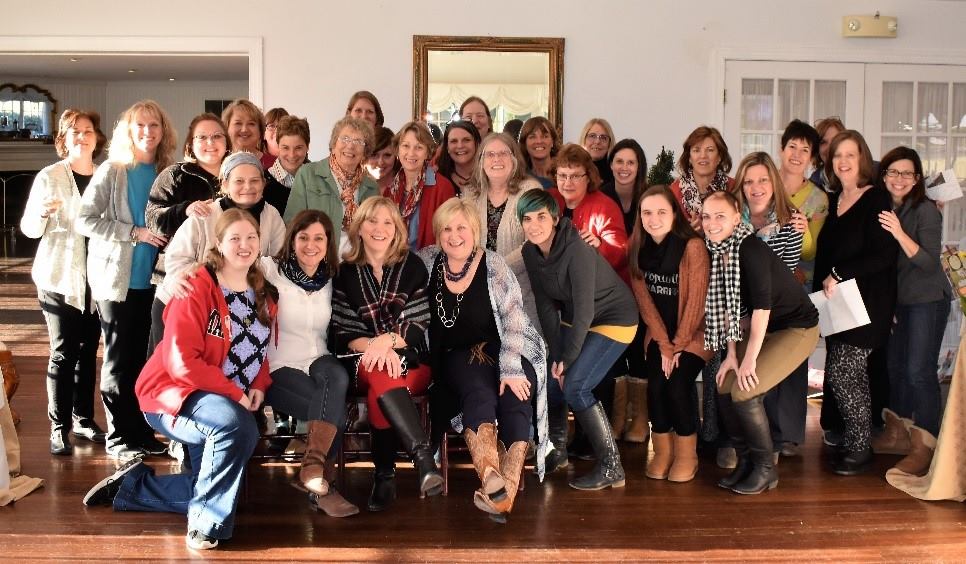
The Wholistic Woman Community
Women who are busy with family, homes, careers, and outside commitments can benefit from a community in many ways. Like-minded women collaboratively help one another and offer support as they deal with similar stresses, commitments, thoughts, goals, and challenges.
At times, many of us have been tempted to put more value on the number of friends we have, the number of social media accounts we belong to, and the number of people who follow us. Wanting more than just a numbers game, though, we move to a different perspective. We recognize the importance of having connections that are genuine, authentic and in alignment with our values.
People connect with and join groups for a variety of reasons. Some women join communities to gain support, motivation, and drive (both personally and professionally). Others may look for a social outlet to offset a life that is filled with taking care of the home and family. Some women may be looking for a group that helps them to find personal improvement and a broader dimension to life. There are a variety of reasons to join groups but when you find one that aligns with you, it’s a pretty incredible experience.
That was my experience when I went to my first Wholistic Woman Retreat. I was introduced to the community by a friend who was a regular attendee and advocate for the group. I remember going with an open mind even though I was unsure what to expect. I was excited, and also a little nervous. I really enjoyed the program because it allowed me to meet new women, connect with others, learn about the group and have a good understanding of the group’s mission and message.
One of the most memorable moments of the night was when I met one of the founding coaches. She welcomed me in a way that made me feel as if I was already part of the group! I found that I resonated with the entire community and enjoyed hearing the other women share their stories. I had an overwhelming sense of calm and connection which was in sharp contrast to the nervousness that I began the evening with. I even felt safe enough to share some of my own experiences with the group. In doing so I noticed that I was able to be vulnerable without judgment or feelings of shame. It was an incredibly empowering experience; one that left me wanting to come back the following month. Now I am grateful to be both a member and a partner coach with the Wholistic Coaching Coalition. That’s how much of an impact the group has had on my life, as well as in the lives of many other women. In this community, I often hear women share similar experiences, thoughts, and observations as I have had.
Being a partner coach and a member of this amazing community, I have seen myself and others grow not only personally but professionally too. The coaches and community provide tools, support, education, opportunities for growth and personal development in a variety of ways. I love what Wholistic Woman provides in my life, the lives of others and how much they give to the community. No matter where you are in your life, the Wholistic Woman community provides a welcoming space for all.
Where some groups may separate social, spiritual, business, and personal aspect of life, the Wholistic approach shows how these elements can flow easily with one another. Each part adds a new dimension and sense of unity. When we get together at our monthly evening retreats, we share stories and observations related to the topic. We discuss a variety of strategies, thoughts, ideas, and experiences to help us evolve and be our best.
This community can help you grow personally, expand your business, reach your goals, connect you with new friends, discover new interests and exercise your creativity.
I believe that we all have within us what we need to be “whole.” What makes the experience of growing towards wholeness even better is to have friends to share the journey with.
To learn more about the Wholistic Woman Community’s coaching events, visit www.wholisticwomanretreats.com.
You’re invited to meet the women of this wonderfully supportive community at our next evening retreat, Be Connected, on Feb. 27. Click here for details.
Today’s author: Kim Wilson is a retired police officer with a huge passion for helping others and working in the community. She is a Certified Holistic Health Coach (CHC) with a Bachelor’s Degree in Sociology from Towson University. For more information on Kim and how she is empowering women to live the nourished life, please visit her website.

A Wholistic Approach to One Word
A Wholistic Approach to One Word
Are you familiar with the practice of using One Word for the year?
Many find this tool more helpful than New Year’s resolutions which can fall by the wayside within a few weeks or months. The idea is that your One Word guides and teaches you throughout the course of a full year. Based on the easy-to-read book, One Word that will Change your Life, by Gordon, Britton, and Page, the practice is simple yet highly impactful. Now in my 7th year using the One Word practice, I have decided to take a Wholistic approach to the practice. This means I will consider my One Word through the four perspectives of wholeness; heart, mind, body, and spirit.
Allow me to explain this approach using my one word from last year as an example.
My word for 2018 was Beloved and it has taught me a great deal in the past 12 months. I like to reflect on the lessons learned before I move on to another word for the New Year.
Heart: As you might imagine, the word Beloved was relatively easy to experience on a heart level. I paid close attention to the inward and outward dimensions of it. Inward meant noticing what it feels like to be someone’s Beloved; to be the recipient of their love and attention. Outward meant noticing what it feels like to show others that they are Beloved to me. 2018 was a significant year as I married my longtime sweetheart, Greg. I had the opportunity to give and receive love in new ways as I committed the rest of my life to this Beloved man and to our blended families. In addition, the year offered significant lessons as I walked, (and continue to walk) a journey through the diagnosis of a terminal illness with a Beloved brother-in-law and sister. This word taught me anew not to take the people I love for granted. You can read more about these heart lessons in Be Loved, My Beloved.
Mind: When I thought about the word Beloved, I immediately went to the dictionary to learn its official definition. Webster’s tells us that it means ‘dearly loved, or dear to the heart’. No surprise there. I am aware who is dear to my heart, as I imagine you are, too. However, I cannot help but wonder how well I express that ‘dearness’ to those who are Beloved to me. Like many, I often get caught up in the busyness of life and focus on completing the tasks that make up my work and life activities. I believe that what we focus on grows, so when I focus on accomplishing tasks, I must admit that I get a lot done and feel satisfaction from my efforts. However, something is lost when I allow myself to focus solely on my ‘to-do list’. I lose the being part of me. I have learned this year to focus more on being with those I love. I have prioritized quality time with those dear to me and have built a wealth of joyful memories as a result of that prioritization. I still get my work and life tasks done, but there is a better balance now as I try to make sure those who are dear to me know just how much I treasure them.
Body: I was surprised at what I found when I looked at my word Beloved from a physical perspective. Similar to what I learned from the heart and mind dimensions, I noticed that it had to do with taking people for granted. In this case, however, it was my own health and well-being that I took for granted. I tend to assume that my body will function how I need it to each day. It isn’t until I get sick or injure myself that I realize just how precious a healthy body is. I am in awe of the physical design and intricate systems of the human body. I consider my body a gift from my Creator. I see that gift as a Temple and feel a responsibility to maintain my health in optimal condition so that I can be (and do) all that I am called to be and do. Early in 2018, I was motivated to treat my body very well as I prepared for our wedding. During the first half of the year, I was a healthy eater, exercised more than ever before, got plenty of sleep, and generally practiced excellent self-care. After the wedding, however, I took a break from those good habits and I am still trying to get back to them 6 months later. I admit that self-care can be hard for me. I’ve had a lifelong tendency to focus on others more than on myself. According to Gallup’s Strengths Finder, my leadership style is ‘Relationship Building’ and I agree completely. I love people; whether at work or at play I am fascinated by human interactions. This year I added a new tool to my personal development with the Enneagram assessment, an ancient typology of nine interconnected personality types. According to the assessment, I am a 2, which is known as The Helper. It confirmed yet again that I am hardwired to focus on others. I am designed this way. My word Beloved, when focused inward, reminds me to incorporate self-care with the care of others. It is absolutely necessary to take care of my body and health in order to be the giver that I am designed to be.
Spirit: To be honest, I was somewhat uncomfortable when the word Beloved first resonated with me early in 2018. It is not a word that I use in everyday speech, so it felt a bit awkward. My use of it was infrequent and, even then, it was in written form. It is a word that I usually see in my favorite Good Book, so I have thought of it as a spiritual word. I can almost hear God’s voice saying, “This is my Beloved Son, in whom I am well pleased.” It felt like too grand of a word for me. It was a word to describe the Son of God, not Carol Sue. But because the One Word practice comes from God/Spirit I felt compelled to pursue it this past year. I delighted in highlighting Beloved whenever it appeared in my daily devotionals. Unlike my other yearly theme words, this word has not appeared very often in conversations, on posters or coffee mugs or in songs, but it has appeared often in my devotional readings. There has been a wonderful spiritual connection whenever I have read the word Beloved because I can almost hear God saying it…and that brings me joy. I have also been reminded that one of the names for the Holy Spirit is The Helper. This reminder encourages me to trust that there is a Force greater than I which helps those in need. I can relax and not spread myself so thin by quickly swooping in with assistance. I prayerfully ask the Spirit to guide me every day in offering my help. I have learned that spiritually guided help is much more effective and less exhausting in the long run. I use the prayer that I wrote in my book, Lost and Found: Discovering Strength in Love and Faith, each day to orient and ground me:
Dear God, be personal and present with me today; Be my best friend. Help me see how you are guiding and providing for me; Holy Spirit, You lead. Continue to heal my heart swiftly and silently so that I can be all that you created me to be; Make me whole. Amen.
As I ask God to guide me each day, I embrace in a trusting relationship with my Creator. I feel connected and sense when my actions are in alignment with the Spirit.
I share this example of a Wholistic Approach to One Word because I find that it adds a deeper dimension to my yearly word practice. I encourage you to try it as well. If you are new to the One Word practice, I suggest that you read the book mentioned above and find a Stretch Team to discuss your word with throughout the year.
Women in the surrounding Frederick area are invited to join me for an evening retreat about the Wholistic Approach to One Word on January 30th from 5:30-7:30 pm. Click here for more details and registration information.
A second invitation is to join a One Word Coaching Group offered by the Wholistic Coaching Coalition. These small groups are open to women and men and will meet conveniently via Zoom calls in February and March to get you off to a great start with your One Word for 2019. Click here for more details.
Feel free to comment here with your thoughts and questions.
Today’s author: Carol deLaski, PCC, is a strengths-based executive leadership coach who guides individuals and businesses to be their best. For more information about her coaching services, and her book Lost and Found: Discovering Strength in Love and Faith, visit www.caroldelaski.com or email her at [email protected]

Releasing Anchors to Help You Soar
Releasing Anchors to Help You Soar
While on a business trip over the summer, one of my mentors referenced the concept of anchors and wings. This stuck with me for a while and it’s something I’ve incorporated into my every day. Something I am focusing on more as we move into a New Year. It’s the concept of those things that weigh us down and the ones that help us rise and soar.
Where in your life do you see anchors? They can come in many forms. It may be a toxic relationship or a bad habit that you haven’t let go of yet. Maybe it’s the clutter or noise that comes into your personal space or your mindset. It may be time wasted or time not spent well. Holding onto those moments where someone hurt you or past failures may be another example.
When we think of nature, think of the reasons why birds are able to spread their wings and fly. They are able to gracefully soar because they are light and don’t have things weighing them down. Imagine if you could soar in 2019 with less weight on your back (or in your mind).
As you reflect on where you have come, where you are and where you want to go, think of changes and adjustments that may help you soar higher.
1. PERSPECTIVE
The things we think about often manifest into reality. How would you view your perspective on life? Do you find yourself being sucked into drama and negativity? Do you choose to look at life with gratitude and joy? The outcome of the two can deliver completely different results. In 2018, my “one word” was JOY. It helped me to view things from a different perspective throughout the year. I also started each day with gratitude and wrote down things I was grateful for, who I would reach out to, how I wanted to serve and better show up in the world. I recommend looking at how you receive things and what changes you can make to better serve you each day.
2. TIME
We all have the same hours in the day. This is something we have heard many times and it’s true! So, how are you spending your time? Do you feel like you’re using it wisely? Do you think there are adjustments that can be made to help you soar more? Are you filling your time with things that are weighing you down? Things that help you to find happiness, passion, fulfill your dreams and goals and also help you grow.
3. PAST
The past often runs into our present for many reasons. This may be due to past choices that did not serve us well. This may be a past relationship that hurt or someone you were with who wronged you. Whatever it may be, forgiving, learning and moving forward will help you soar. How we feel about people or experiences of our past can make for heavy anchors. So many things happen for reasons and ones we sometimes don’t see. As you move into 2019, what from your past can you let go of, forgive or consider as a lesson and tool to help you soar?
Looking for a resource to help you with the mind/body connection of healing? This book may help: The Healing Code
4. RELATIONSHIPS
This is a big one and something that often can weigh us down. Consider the people in your life right now. Do you surround yourself with those who support you, encourage you to soar, help you to show up as the best version of yourself? This is a big one that I learned in 2018. I spent the past year cultivating healthy relationships, surrounding myself with GIANTS, created boundaries and said goodbye to things that were not serving me well. Depending on your situation and relationship, making adjustments may be hard or easy. Figure out what works for you. If it’s not serving you well, maybe it’s time to say goodbye or at least create a healthy boundary.
5. LIFESTYLE
Our lifestyle plays a big part in how much we soar and show up. I look at life and the wellness wheel from a holistic perspective. Considering relationships, spirituality, career, movement and exercise, nutrition and nourishment. Looking at your wellness wheel, what seems off-balanced? Which category (or categories) can you nurture more to better serve you? What bad habits and choices are a part of your world that may serve you better to let go of?
6. HABITS
The start of a New Year is a great time to reflect on your habits. Good and bad, we all have habits that are holding us back, weighing on our mind, creating unhealthy energy and don’t serve us well. This could be anything from keeping clutter, hitting your snooze button many times, eating for unhealthy reasons, spending too much time on social media and more. I encourage you to reflect on the habits in your life. What can you let go of and which ones may serve you better?
7. FEAR
I want to focus on this topic because it’s something that affects so many and holds people back. Fear is important for survival. We have a fear of falling or being hurt. Yet, fear holds us back and keeps us complacent for many reasons. We fear failure, success, what people think and more. Do you feel like you’re living to your potential? Does fear hold you back from doing so? Where can you discover ways to grow, be courageous and take chances? This isn’t referring to being dangerous to the extent of hurting or harming yourself and others. This is about living outside of your comfort zone, taking chances, learning and growing!
Looking for some additional motivation and mindset shifting? I’ve always loved the videos on Motivation Grid
So, what changes can be made? What bad habits and toxicity can be eliminated or distanced? What better things can be replaced to help us soar and succeed? Change is uncomfortable and not always easy. Yet, sometimes change is exactly what we need to flourish, grow, become a better version of ourselves and SOAR.
Where do you feel the need to make a change? I welcome you to comment below or share in a private message. If you feel like you need additional support or accountability, I welcome you to contact me.

Packing List for Life’s Journey
Packing List for Life’s Journey
Every seasoned traveler knows that packing appropriately can make a big difference to your experience. If you forget to pack your gloves on your ski trip, you are either going to need to buy some or you are going to be pretty miserable.
This got me thinking about a packing list for life’s journey. This packing list is modeled after the 10 guideposts to wholehearted living found in the book The Gifts of Imperfection by Dr. Brené Brown. I hope you find it as helpful as I have 🙂
- Bring authenticity – Be truly yourself, practice being vulnerable. Let yourself really be seen. Leave behind the masks and armor you have accumulated over the years. They will just weigh your life down.
- Bring compassion, both for yourself and those you encounter on your journey, leave behind perfectionism…there is no such thing as a perfect life, only perfectly imperfect ones.
- Bring a resilient spirit…when you find yourself in an unexpected rain storm, believe that you have what it takes to make it through. Seek the shelter of help if needed. Leave behind numbing and powerlessness as those behaviors and thoughts can leave you feeling lost and hopeless.
- Bring gratitude and joy…look for the good in life. Speak words of appreciation to yourself and others on a daily basis. Leave behind scarcity and fear of the dark…you are worthy of love and belonging. You are enough. Remember that!
- Bring intuition and faith, leave behind the need for certainty…You are never going to be able to predict all the unexpected surprises that you will undoubtedly encounter along the way. Trust that divine intervention is with you always, guiding you even when you don’t realize it.
- Bring creativity – the life you design together will be uniquely yours. Leave behind comparison…Instead of comparing your life to others’, ask the question, “Is this working for me?” If the answer is yes…great. If the answer is no…be creative and try something different.
- Bring along play and rest while leaving behind exhaustion as a status symbol and productivity as self-worth …Do things that rejuvenate you and refills your tank. When you are tired, rest. Remember, it doesn’t matter how fast you go. Enjoy the moments and go at your own pace.
- Bring calm and stillness, leave behind anxiety as a lifestyle…some of the most memorable experiences will be those born out of not having an agenda. They will come in the quiet stillness of just looking up at the stars. Anxiety will undoubtedly show up at different times during your journey, learn from it and move on, but please don’t pack it.
- Bring meaningful work…something that leaves you feeling accomplished and feeling like your life has purpose. This may or may not be what we do for employment. Do not pack self-doubt and “supposed to’s”…practice trusting yourself and learning to say no to things that are not moving you toward your best self and your best life.
- Bring laughter, song and dance, and leave behind being cool and always in control. Please pack your sense of humor and a willingness to be silly and not take yourself too seriously while leaving behind a need to always be right.
This packing list is something I need to revisit on a regular basis. I hope you find it as useful as I have as you navigate your way through life. Is there anything else that you think is important to pack or to leave home? I’d love to read what you have to say!
Today’s author: Laura Hall, CPC, CDWF: As a certified professional coach since 2009, Laura Hall, Certified Daring Way™ Facilitator has been helping people just like you make changes in. As a mother of 2 girls, Laura has a special interest in coaching parents, so if you still have children living at home, ask Laura about her Wholehearted Parenting programs. Laura can be reached via email at [email protected] or feel free to visit her website HallCoaching.com
